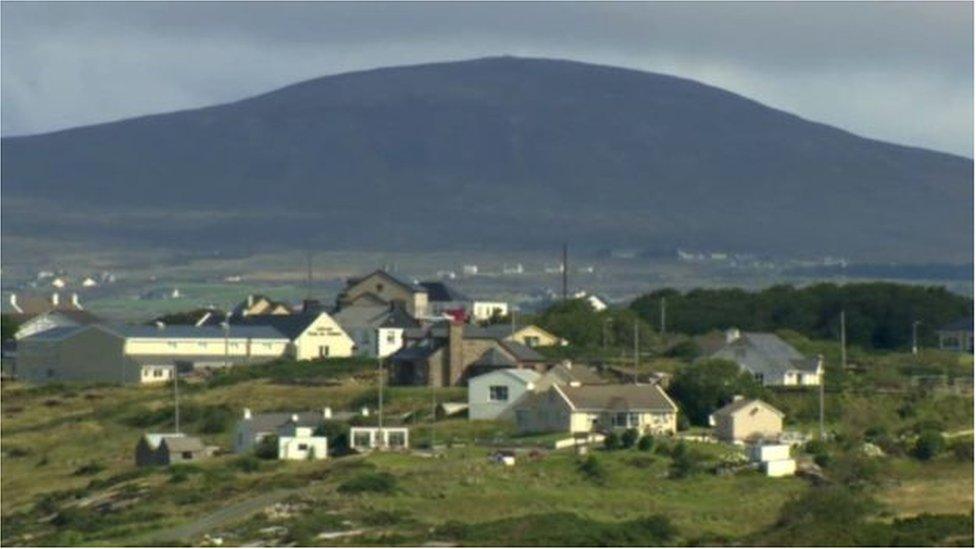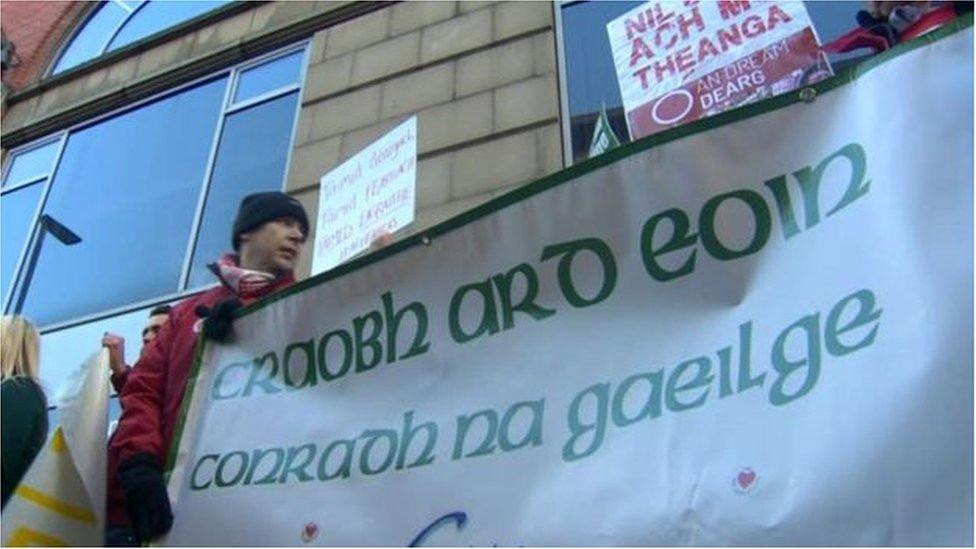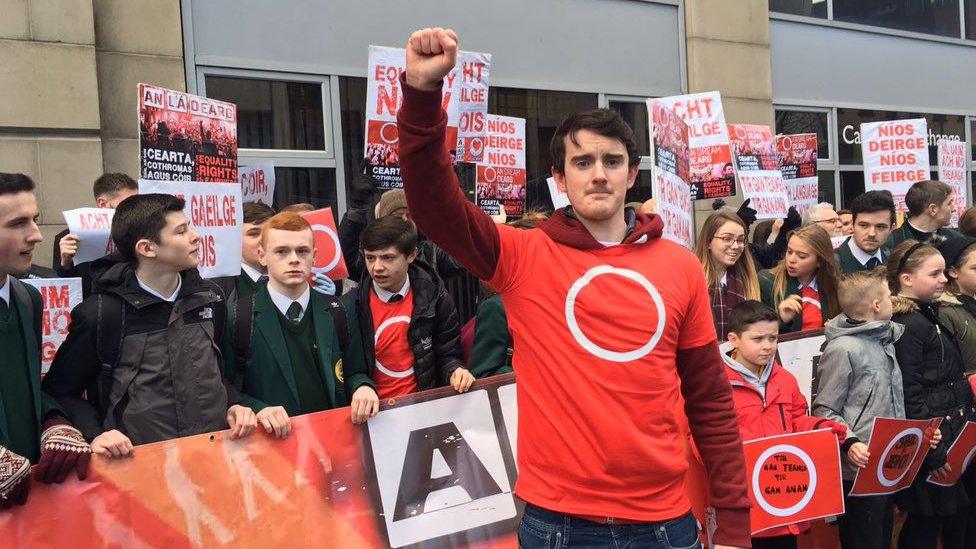Irish language scheme cut without equality tests
- Published

The bursary awards allow language learners to spend time in Irish-speaking areas such as this one in County Donegal
The Department for Communities (DfC) failed to carry out necessary equality tests before cutting an Irish Language bursary scheme.
That is the conclusion of an investigation carried out by the Equality Commission.
The Liofa scheme allowed at least 100 people a year to attend summer Irish language classes in the Gaeltacht.
The Líofa programme was set up by former Sinn Féin culture minister Carál Ní Chuilín in 2012.
Equal opportunities
The commission's investigation found that DfC failed to assess how withdrawing the Liofa money would affect the promotion of equal opportunities.
When making spending decisions, public bodies like government departments have to ensure that what they are doing is fair and does not disadvantage any group.

Members of the Irish-language community gathered at the Department of Communities offices when the funding was cut
They must also try to promote good relations between people of different political opinions, religious beliefs or racial groups.
The Equality Commission has the power to investigate if it believes a public authority has failed to do this.
'Failed to comply'
The Equality Commission found that, with regard to Liofa: "When department officials made a submission to the minister in December 2016 for a decision on the options presented, no equality assessment information was included for the minister's consideration."
"The investigation found that the department failed to comply with its equality scheme, in that it did not take into account any equality assessment carried out in relation to the policy," the commission said.
Mr Givan said the report vindicated his position.
He said that the evidence contradicted Sinn Féin's "outrageous claims… that my decision was discriminatory" and called for the party to apologise.
Allow X content?
This article contains content provided by X. We ask for your permission before anything is loaded, as they may be using cookies and other technologies. You may want to read X’s cookie policy, external and privacy policy, external before accepting. To view this content choose ‘accept and continue’.
He said that there was no equality assessment carried out when the scheme was set up and that if Sinn Féin had set it up in a more "collegiate way… then there wouldn't have been the controversy associated with the scheme".
However, Sinn Féin chairman Declan Kearney refuted Mr Givan's assertion that his position was vindicated accusing the DUP of a "cavalier approach" to the administration of public funds.
He said that the Líofa scheme did not require an equality assessment when it was set up in 2011 as it was "not a sectional program".
He accused Mr Givan of "ruling by fooling" and said that the wider community needs to be convinced that there will be no prospect of "institutionalised bigotry" in relation to how public funds are distributed in any future executive.
The Equality Commission also criticised DfC's handling of the Community Halls pilot programme.
It was set up in 2016 to pay for the maintenance and refurbishment of community halls.
The commission also found that the department did not assess the likely impact of the programme on promoting equality of opportunity.
The chief commissioner, Michael Warlow, said that the commission had made a number of recommendations they expected DfC to implement.
"The department should have undertaken screening and equality impact assessment at appropriate times to inform the development and decision making on both the scheme and the programme," he said.

Irish is seen as important to the wider nationalist community as a symbol of identity
"Our investigation found that this did not happen in either case and the minister was not furnished with appropriate equality assessment information."
"Any continuation of either funding programme must be informed by equality assessments in the future."
"We have asked the department to report on the implementation of the recommendations within six months."
However, there are no further sanctions the commission can impose on the department for its failings.
- Published16 June 2017

- Published23 December 2016
